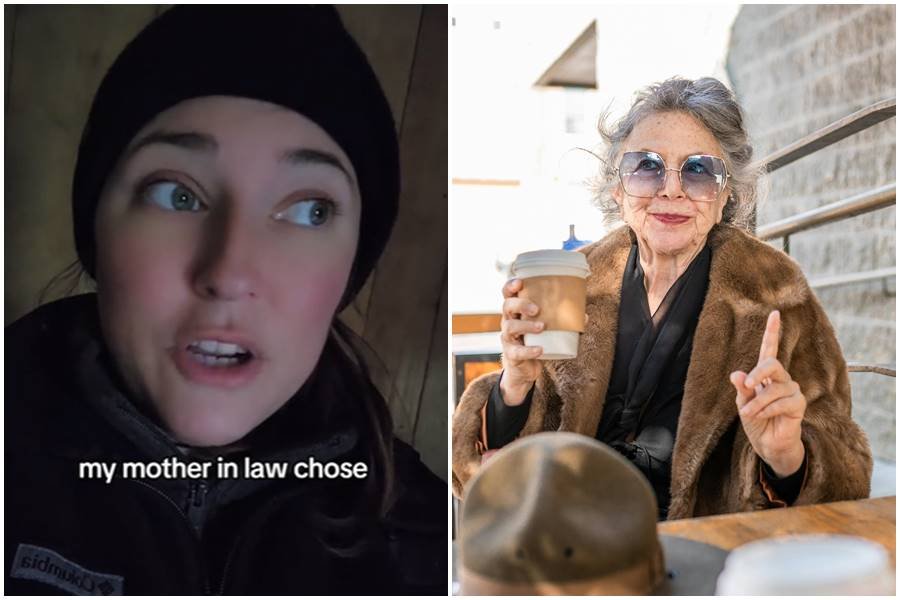A TikToker’s story about the grandiose title her mother-in-law chose instead of grandma is an excellent example of the growing trend of baby boomer grandparents rejecting their traditional titles.
A new mother who goes by the name EvieKizmet on the platform shared the story on January 6 and it received nearly 2 million views.
It all started when she and her husband asked her mother-in-law to choose the name she would use as a grandparent. Using a fake name as an example, she said that her mother-in-law chose “Mama Smith” and that didn’t sit well with the mother. “Because realistically, a child is not going to call you by 2 names and it’s going to be shortened to Mama. I’m a mama. Not you,” she said.
Her husband agreed that it was an “insane” idea.
this one was quite the ride and ended so funny, i got the last laugh
They asked the mother-in-law to come up with another name. “So, after a lot of thought and effort, she came back with ‘Queen Mother,’” she said. The mother-in-law rationalized the name, which also works as an aristocratic title, by stating that she may not be a “mother” to the up-and-coming king, but she is a mother to the “reigning king.”
“To be fair, I think she’s watching ‘Bridgerton,’ so that may have played a role,” the TikToker said. The mother then suggested a shorter version, “Queenie.” This wouldn’t fly with the parents-to-be either and eventually, they all agreed on “G-ma.”
The story about the entitled mother-in-law appears to be part of a more significant trend where boomers don’t want to be known as grandmas or grandpas.
“Many baby boomers have a hard time reconciling their vibrant, vital and active selves with the traditional names — they don’t fit their self-image,” Ellen J. Klausner, Ph.D., a clinical psychologist in the New York area, told Good Housekeeping. “They think of themselves as organizing and running marathons and associate those traditional monikers with a more sedentary lifestyle — the older relative in a rocking chair — that is not their own.”
To further complicate things, the older generation is now grandparenting in an era where they are more likely to be part of step and blended families and there are a greater number of great-grandparents still around. Dr. Kluasner says that “means that names have to differentiate between the generations and different extended families.”
Paula Span, a New York Times columnist specializing in aging, believes that boomer grandparents have a different approach to names because they don’t think they have much in common with their grandparents.
“A generation of women who entered the labor force, and men who entered the delivery room, isn’t so keen on the old standbys, perhaps,” Span writes. “But here’s my deeper suspicion: However mightily my peers may pine for grandchildren and adore them when they arrive, some don’t want to acknowledge being old enough to be dubbed Grandpop or Granny.”
The younger generations often criticize boomers for being selfish and their inability to understand the challenges that young people face today. But you have to give it to them for being reluctant to admit they’re getting older by taking on the title of grandma or grandpa. Plus, it’s something the younger generations can use to their advantage. “Grandma” or “Grandpa” may be too old and tired to babysit on a Friday night, but “G-ma” and “G-Pa” definitely should be up to watch the kids so you can have a date night.




























